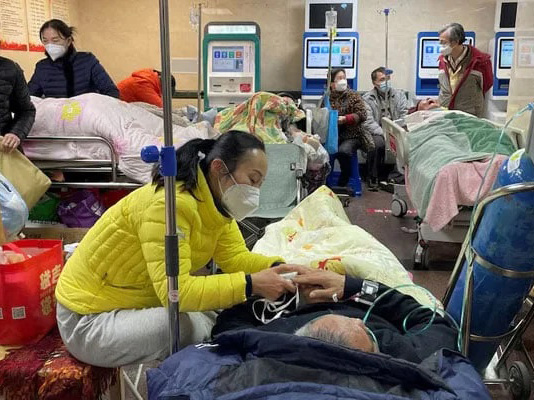The Federal Government announced plans to activate surveillance measures for incoming passengers from China in response to a recent surge of respiratory infections linked to the Human Metapneumovirus (HMPV). Reports indicate that the virus has caused overcrowded hospitals, emergency measures, and public concerns in northern Chinese provinces, particularly among children under 14.
Neighboring countries like Cambodia, Taiwan, and Hong Kong are monitoring the situation closely, though they have reported only isolated cases. Chinese authorities have implemented measures such as increased monitoring, mask usage, social distancing, and disinfection of public spaces to curb the spread of the virus.
HMPV, a seasonal respiratory virus similar to RSV, typically peaks during winter and spreads through respiratory droplets or contact with contaminated surfaces. Symptoms range from cough and fever to severe cases involving bronchitis or pneumonia. Unlike COVID-19, HMPV generally causes milder illnesses.
The outbreak comes five years after the emergence of COVID-19, which infected over 777 million people globally and caused more than seven million deaths, according to the World Health Organization (WHO).
In response to the HMPV surge, China launched a pilot program to track pneumonia of unknown origins, ensuring timely reporting and management. Despite concerns, Chinese officials have downplayed the severity, describing it as an annual winter occurrence with fewer cases than the previous year.
The Nigeria Centre for Disease Control and Prevention (NCDC) has confirmed plans to enhance surveillance and implement preventive measures. Dr. John Oladejo, Director of Special Duties at the NCDC, stated that incoming passengers from China might face quarantine measures to curb potential spread.
Medical experts have supported the government's move, emphasizing the need for continuous surveillance. Dr. Moses Adewumi from the University College Hospital, Ibadan, noted that increased vigilance is critical, especially in monitoring potential variants of the virus. He urged the government to invest more in local research and surveillance.
Similarly, Dr. Oladipo Kolawole, an Associate Professor of Infectious Diseases and Genomics, praised the surveillance plan as an essential step to detect and manage potential outbreaks. He highlighted the importance of screening at entry points, quarantine protocols, and overall public health preparedness to mitigate risks.
WHO has advised global adherence to preventive measures, including vaccination against respiratory pathogens, mask wearing, handwashing, and maintaining good ventilation. While no specific travel restrictions have been recommended, travelers experiencing symptoms are encouraged to seek medical attention promptly.
First identified in Pakistan in 2001, HMPV has caused periodic outbreaks, mainly in Asia, but remains new to Africa. Experts caution that proactive measures are necessary to prevent its introduction and spread on the continent.









